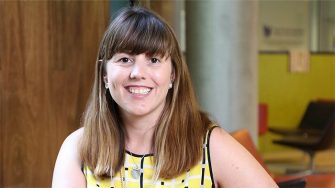SPOTLIGHT: Dr Holly Seale: Applying a social science lens to population health
Social scientist, Dr Holly Seale is Director of the Bachelor of International Public Health (BIPH) at the School of Population Health (SPH), and co-convenes a Masters course in infectious disease and the School's internship program which gives Masters students real-world experience.

